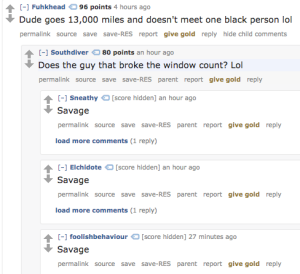There’s a lot of forced-sensation being placed on literary suspense these days. Much of that faux suspense comes in the form of the injected phrase “… wait for it…”.
This method is often used when a person puts too much emphasis on information that could otherwise be delivered regularly at the end of a sentence. I came across a post about some person leaving their job at Ubisoft where, within the first paragraph, at the end of the 3rd sentence, the author uses the “wait for it” method.
Back in 2005, I remember my boss asking me where I’d see myself in 10 years. I answered without hesitation: I want to be a software architect on a big-ass AAA project! The dream came to life a few years later, when I started working on Assassin’s Creed Syndicate as – wait for it – software architect.
Why am I waiting? Who the fuck cares if this person got a software architect job when there was zero emotional investment in their career choice? Here’s how I see modern usage of “wait for it” and why it’s so fucking bland:
I learned what 3+3 equals today. Wanna know what it is? 3+3=… wait for it…
6
OMFG you literary mastermind of our generation. Please tell me another grand-master fuck head.
You know when “wait for it” is a proper choice in building suspense? Never. That’s right. I never want to be told to “wait for it” when you’re on the cusp of giving me information I potentially want to hear. If you want to tell a really good story or anecdote, build your own suspense by adding some drama or inserting some emotions or thoughts. Maybe try using a Red Herring or a twist ending.
Fuck…. wait for it… you.
